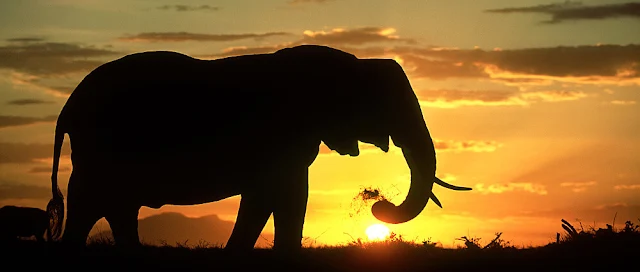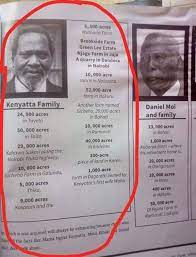LATEST HOT NEWS IN THE ROOM
Aliveness: Growth will often feel slow in the present moment (if it feels like growth at all...), but the fact that you have been breathing in this space is a sign of aliveness (even if it's small). Assemblage: Be patient with yourself as you assemble the parts of a new dream. It takes time to bring the parts together to create something beautiful. Attention: Let this be a space where you pay attention to the little things that sing to you: "After everything you have been through, it is not too late for you to breathe deep with courage and create something new." Attentiveness: Pay attention. Engage with life. As you observe the patterns and changes, don't forget to notice the good patterns, too. The small movements in the water, building into something larger than what you ever could have imagined. Authenticity: May there be room for you to be present to life in a way that allows you to breathe more freely...beyond the confines of who you thought you had to be. Awar...
Omukoyi Enjofu-Mundu
- Get link
- X
- Other Apps
By PAUL MASIBO WABWAYI NGOME
WORLD STREET NEWSTIME
0 Comments

In few weeks that have passed, Akneta, others and I are seated listening to Mayi Muro, the sensational song by Wanyonyi Omukoyi. Akneta, widowed with Katupa - a veteran of the 2nd Great War, is an aged Omulukulu woman. She is a sister to Regina, my paternal grandmother. 3 minutes into the song, she asks of the song to be paused to give us a short tale of her old Omukoyi relative who had uncanny powers to turn into a real elephant! It was motivation enough to learn more about the famed Bakoyi clans-people and what cultural peculiarities they proclaim.
Tracing Bakoyi Cluster
Bakoyi is a clan whose roots are traced back to Barwa in the ancient migration patterns. The ancestor of Bakoyi was a Kalenjin who was assimilated into Bukusu clanal ranks as back as the fifteenth century. In fact, it is noted that Omukoyi came into Embayi Plains, way before Bamalaba-affiliated clans such as Basakali, Bakuta, Bakhonjo Babuuya and Bayemba.
History rememberers say that Omukoyi belongs to the Banabayi Cluster. All clans under Banabayi evoke the Oath of Munyole. [This blog has extensively talked about different Bukusu clusters and oaths in other episodes. However, we shall revisit.]
The word Banabayi comes from Babaayi which is a plural of omwaayi or a herder. But, far from what it means, Banabayi are no normal herders. They played a special role of ‘herding’ people. They were tasked with looking after their clansmen and those from other clans. After setting up a homestead, in a new area, for example, Banabayi were invited for thanksgiving. They would stick their spear into the ground, scoop a lump of soil and hold it skywards asking Khakaba to bless their stay of new beginning.
And such Omwanamwayi would be from the clan of Omuyaya, Omusombi, Omusekese, Omusichongoli, Omutecho, Omusime, Omukangala, Omuleyi, Omuliisa, Omuyiitu or Omukoyi- who share a common ancestry. Since then, Bakoyi have produced good leaders- babaayi be babandu. While Bakoyi were not traditionally a militarized clan such as Batukwiika taking active role in war, they formed good judges. In communities, they argued for peace, being quick to unite when cracks emerged. An Omukoyi tribesman or woman was valued in face of Khakaba and whatever they blessed did not wither. Khakaba blessed livestock, gave immense health to clansmen and every warriors prior to war. But, it was not the ‘herding’ attribute that has popularized Bakoyi in Bukusu culture; it is another trait- the love for the African elephant (Enjoli/Enjofu).
Swells into an Elephant when Provoked
In her youthful days, my grandmother’s sister narrates an ordeal in which she had a confrontation with an Omukoyi. She calls that she were not too young, about the marriageable age. Omukoyi warned her not to push him further or she will regret. Out of sheer persistence (she was on the wrong) Agneta pressed the conflict further. He then warned, telling her to meet him in the back of the hut.
Alas! Akneta could not believe it! On doing a told, she met face to face with a full grown elephant, staring at her with rage. Momentarily she had been blinded by wits from her Omukoyi relative. She was hit with fear, temporarily paralyzed, not even a grain of energy to give a scream. Abruptly, she took off, never again to engage a quarrel with him and never again to see the elephant in their homestead.
While a reader cannot make sense of what transpired, Akneta cannot me convinced otherwise. She had seen first-hand Bakoyi wits and witnessed their ability to conjure elephants.
Indeed, Omukoyi is an elephant-man!
Omukoyi: Omusolosi we Enjoli
While other clans are gifted with other powers such as circumcision, rainmaking, royalty, and giving public lectures, Omukoyi was gifted by the power of conjuring the elephants. Along with Barefu and Bakamukong’i, Bakoyi had close ties to elephants, back in the days in which the massive animals roamed the lands.
Consulted sources cannot give an exact account of how the Omukoyi-elephant relationship unfolded. Perhaps they used the mammals to commit their ancestral wits, magic and trickery. Or they, relied on the animals for tusks to make tools or their fertile dug to grow arrowroots and sweet potatoes. It is also alleged that when elephants showed up in the vicinity to feast on grown crops, Bakoyi elders would be consulted to avert the gigantic beasts, soothing their heart and driving them off.Some accounts have it that occasionally; Omukoyi herder could be spotted riding the mammals to help in control huge number of livestock being grazed. There were also gifted map-readers following elephant poop, to seek direction when lost, trail water sources and other treasures. Elephant behaviour and movements might have been also used to tell when to expect rains after a long dry spell. Reportedly, they could also be a source of medicine and/or gave items for use in divination (bulakusi). Just as Bakoyi could soften the hearts of tribesmen and women to shun fighting, resentment and conflict, Khakaba might have extended their prowess to tame the enormous beasts. Thus, to an Omukoyi clansman, an elephant was important animal. The specifics would only be known to the very elephant herders whose calming powers were admired beyond rivers and valleys. May the good heavens shower down blessings, we close and begin another year!
Lusimo: Enjofu yebubwayaya sekhusia kumusanga ta
[A reckless elephant cannot grow its tusk up to maturity]
Take good care of yourself. A reckless life will limit your potentials to maturity.
A story is good, until another is told
World street news time brings you the Latest News from Kenya, Africa and the World. Get live news and latest stories from Politics, Business, Technology, Sports and more.
We also mostly keep the cultural practices of the Luhya community,Kenyan communities,Africa and the world at large.Be in touch and get informed. Wele khakaba okaba mala kenya kenya Eyiefwe Ebeo amulinde.Salimia yesu Wa Tongareni.
- Get link
- X
- Other Apps
TOTAL PAGEVIEWS
10107
YOU CAN ALSO SEE MORE IN OUR POSTS
Generational shifts
By PAUL MASIBO WABWAYI NGOME
WORLD STREET NEWSTIME
A generational shift refers to the gradual transformation of attitudes, behaviours and societal norms as one generation succeeds another, often leading to changes in culture, technology adoption and workplace dynamics. Generational shifts are driven by various factors, including geopolitical events, technological innovations, digital transformation, economic trends and cultural changes. These shifts have a profound impact on the workplace, influencing communication styles, leadership approaches and expectations regarding working conditions, benefits and career development. Commonly recognised generations include Baby Boomers, Generation X, Millennials (or Generation Y) and Generation Z, each of which has distinct characteristics and experiences that contribute to generational shifts in society. History of generational shifts Generational shifts have been a recurring phenomenon throughout history, shaped by the unique experiences and influences that each generation fa...
Uhuru secret team to fix succession by 2022
By PAUL MASIBO WABWAYI NGOME
WORLD STREET NEWSTIME
Uhuru secret team to fix succession by 2022 Eager not to fall into the same trap as that of his mentor Daniel Moi and predecessor Mwai Kibaki where their preferred presidential candidates were beaten hands down, Uhuru Kenyatta has formed a special team to advise him on his succession. The special team comprises Director General of the National Intelligence Service, Phillip Kamweru, president’s kid brother Muhoho Kenyatta, his uncle George Muhoho, Interior principal secretary Karanja Kibicho, former Kenya Defence Forces chief Julius Karangi and former presidential adviser Nancy Gitau. Uhuru’s mother, Mama Ngina, is also joining the team whenever they have a burning issue to discuss. First Lady Margaret Kenyatta and Uhuru political buddy David Murathe, are also in the loop. Unconfirmed reports have it that ODM leader Raila Odinga is also in the team. Those claiming Raila is a key player cite functions influential people surrounding Uhuru have attended in Luo Nyanza. Raila rece...
Is the mission Impossible Implementing the Ndung’u Report in kenya?
By PAUL MASIBO WABWAYI NGOME
WORLD STREET NEWSTIME
Land continues to command a pivotal position in Kenya’s social, economic, political and legal relations. Perhaps this explains why, when other resources for political patronage have declined at any time in our political history, the ruling elite have resorted to illegally dishing out public utility land. This phenomenon of illegally and irregularly allocating public land to “politically well-connected persons” gains pace just before and after elections. Over the years, a culture of corruption and impunity flourished and went unpunished amongst those entrusted with power over public utility land. 10 Implementing the Ndung’u Report On 30th June 2003, the NARC government appointed a commission of inquiry to investigate the illegal and irregular allocation of public land in Kenya. The Commission came to be known as the Ndung’u Commission, and its report as the Ndung’u report, after Paul Ndung’u, the Nairobi lawyer who chaired the commission. In its report, relea...
Uhuru clueless about PS reshuffle list?
By PAUL MASIBO WABWAYI NGOME
WORLD STREET NEWSTIME
Uhuru clueless about PS reshuffle list? Who is doing what and where and to whom in the world of politics • Was President Uhuru Kenyatta kept in the dark on how the list of the Principal Secretaries he reshuffled in September? •The troubles of a lawmaker, who is teetering on the edge after his party threatened to unseat him, are far from over. President Uhuru Kenyatta./FILE Was President Uhuru Kenyatta kept in the dark on compilation of the list of Principal Secretaries he reshuffled in September? Corridors overheard two senior government officials at a famous city club, discussing in low tones how two powerful individuals with huge influence on the President’s decisions were the ones who generated the list of the PSs. The PSs were moved to what were seen to be less lucrative posts. Then the two officials asked the head of state to approve the list before the changes were communicated to the public. At the club, the offi...
How Idi Amin took Uganda to the brink of war in 1976 after attempts to annex parts of Kenya Territory
By PAUL MASIBO WABWAYI NGOME
WESTERN KENYA CULTURAL HERITAGE
When Uganda’s former leader, Idi Amin, seized power .Jomo kenyatta from the then president, Milton Obote in 1971, his act was received with lots of cheers in Kampala but he would later be seen as a monster after he took up a dictatorial style of leadership. He had come to power with good intentions for his people but as time went on he became power-drunk and started abusing people, historians say.He became ruthless and brutal, repressing the Ugandan people and ignoring their human rights, and subsequently ruined the economy when in 1972, he ordered the deportation of over 80,000 Asians living in Uganda Western leaders, including the United States, cut ties with Amin, and this, coupled with the growing resentment he was getting from his country made him believe that waging war against neighbouring Kenya would save his regime .In 1976, the military dictator attempted to redraw the boundaries of Uganda and Kenya saying that he wanted back all ...
Komodo Dragon
By PAUL MASIBO WABWAYI NGOME
WORLD STREET NEWSTIME
The Komodo dragon is a lizard in the family Varanidae, the monitor lizards. It is well known for being the largest living species of lizard. Lizards are reptiles in the order Squamata , which also includes snakes. Lizards are generally smaller than other reptiles, and the Komodo dragon is an example of this. Although it grows to an impressive size, it is still considerably smaller than the largest snakes and crocodiles. A Komodo dragon in a zoo As in other lizards, the Komodo dragon's skin is covered in scales. Most lizards have one or two forms of scales, but Komodo dragons have four. This makes their skin rough compared to that of some other reptiles, and so it is not valued as a source of leather. The Komodo dragon's coloration is generally brown to gray, sometimes interspersed with yellow. The Komodo dragon has an acute sense of smell. Like snakes and many other lizards, it has a forked tongue, which it uses to smell as well as taste. Its main sense organ is...
Victor Wanyama Foundation scholarship beneficiaries undergo mentorship
By PAUL MASIBO WABWAYI NGOME
WESTERN KENYA CULTURAL HERITAGE
Nine kids who were the first beneficiaries of the Victor Wanyama Foundation scholarship programme are undergoing a mentorship programme in Nairobi.With the schools closed for the mid-season break, the foundation is taking the kids through a three-day mentorship programme, Elvis Majani, the foundation’s advocate, has explained. SCHOLARSHIP “We want to develop the kids into responsible citizens and we are therefore very keen in all aspects of their lives. Some of them are coming to Nairobi for the first time and the excitement they have is evident. Other than just the mentorship programme, we also want them to relax and have a nice time before they go back to school,” Victor Wanyama told Nairobi News. Trizah Shem, one of the beneficiaries, scored 399 marks out of 500 at Nambale ACK Primary School and was admitted to St Bridgits Girls High School in Kiminini under full scholarship courtesy of the foundation. She says her dream of ...
Time has come that I must speak the truth
By PAUL MASIBO WABWAYI NGOME
WORLD STREET NEWSTIME
Airtime My friends. My dear Kenyans. I have kept silent for long. Time has come that I must speak the truth. It’s not that I hate them. I deeply Love them They are our Fathers, They are our mothers. They are our Brothers They are our sisters, They are our wives, sons, cousins and daughters. They are our employers They are our employees They are our church leaders They are our mosque leaders They are our political leaders My dear Kenyans What I’m I trying to speak? My speech is about a certain community in Kenya called the kikuyu. It seems this tribe has lost dreams. The communities big dreams are lessening and shrinking. This is a tribe that seems to be in a despair it is in fear of the adventure. The history says, At onetime,the community was chased away from Tanzania It was chased away from Eldoret in 2007''PEV'' It was humiliated everywhere in Kenya in 2007 ''PEV'' The community lives in the national land Everywhere It...
Rachael Ruto commercializes her hobby so as to help women
By PAUL MASIBO WABWAYI NGOME
WORLD STREET NEWSTIME
Rachael Ruto commercializes her hobby so as to help women Mama Rachel Ruto the annual Cross Stitch International Exhibition [Source/twitter/@ssjjkh] Mama Rachel Ruto, the wife to Deputy President William Ruto, has commercialized one of her hobbies to help several women and people living with disabilities. ADVERTISEMENT "I was delighted to officially open the annual Cross Stitch International Exhibition that began at the Safaricom Michael Joseph Center," Rachel tweeted . Through a series of tweets on Saturday, Mama Rachel started that she had officially opened an exhibition where people could buy cross-stitched pieces of art. She invited Kenyans to purchase priceless pieces as they engage with the project that is mainly aimed at empowering women. "Cross stitching is one of my long time hobbies. I was greatly honored to witness a special auction of the priced pieces. Proceeds will go towards supporting women who stitched them while in prison, persons living...
SOCIAL AND EQUALITY TO ALL

My main agenda is adopting a Gramscian theoretical framework, the five parts of this volume focus on the various ways in which the political is discursively and materially realized in its dialogic co-constructions within the media, the economy, culture and identity, affect, and education. We focus at examining the power instantiations of sociolinguistic and semiotic practices in society from a variety of critical perspectives, this blog focus at how applied political linguists globally is responding to, and challenge, current discourses of issues such as militarism, nationalism, Islamophobia, sexism, racism and the free market, and suggests future directions. No peace, no unity, no coexistence hence all becomes vanity...! It's why the world is oval.










